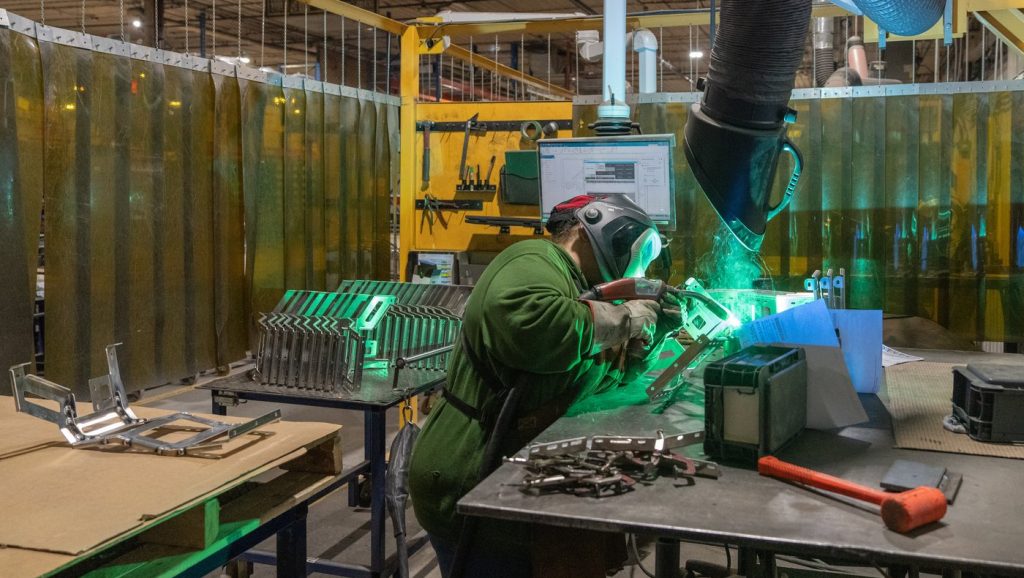The decline in the number of temporary foreign workers is worrying Quebec’s manufacturing sector, which fears “a catastrophic fall” for the affected workers and businesses.
“It’s really one minute to midnight because people are starting to leave,” said Julie White, president and CEO of the Quebec Manufacturers and Exporters (MEQ). “When you don’t know if you’ll be able to work in the fall, you might decide to leave.”
White is calling on the Carney government to grant a grandfather clause for workers already in Canada.
“We’re asking the federal government to allow these workers to stay in Quebec,” she said. “They already live in homes. They’re already here. They’re working. They’re paying taxes.”
Since the spring, the business community has been making numerous public statements opposing the tightening of access criteria for temporary foreign workers.
Previously, companies could only hire 20 per cent of low-wage temporary foreign workers. This threshold has been lowered to 10 per cent. Businesses could thus lose workers essential to their operations if nothing is done quickly.
This tightening “puts sticks in the wheels” for businesses already facing an uncertain economic environment in the wake of the trade war, according to White.
The MEQ is citing revenue losses if businesses are unable to recruit the necessary workers. “There is a lot of nervousness among businesses, and also a lot of misunderstanding about what’s going on.”
In Quebec, a worker earning less than $34.62 an hour is considered low wage, according to the criteria established by the federal government based on the median wage.
This threshold doesn’t take into account the reality of many regions, White lamented. “You have to realize that, in many regions, $34 is much higher than the average income. So, that creates difficulties.”
White stated that she has the ear of Quebec elected officials in the Carney government, but things aren’t moving fast enough for her liking.
“It’s good to have people listening, but we have to succeed in making things change. We don’t get the impression that in Ottawa there’s the same sense of urgency that we have in the regions of Quebec right now.”
The office of Minister of Jobs and Families Patty Hajdu is defending the changes, which would aim to “reduce Canadian employers’ dependence on the Temporary Foreign Worker Program (TFWP).”
“To be clear, the TFWP is designed as an extraordinary measure to be used to fill critical employment gaps, only when qualified Canadians and permanent residents are unable to fill vacant positions,” insisted the minister’s press secretary, Jennifer Kozelj.
“It is not a substitute for Canadian talent and is conditional on ensuring that steps have been taken to recruit Canadian workers. This is the ideal time to invest in Canadian talent.”
Kozelj declined to comment on whether adjustments would be made to meet the demands of the business community.
White replied that foreign workers are needed by manufacturers, while local labor is scarce and many workers are approaching retirement. “If there were local workers, manufacturing companies would hire them.”
Recruiting foreign workers involves costs and administrative procedures, which White estimates at approximately $15,000 per temporary worker.
“It’s time-consuming, it’s an investment,” she emphasized. “It’s not a simple solution. We don’t do it because it’s easier.”
–This report from La Presse Canadienne was translated by CityNews





